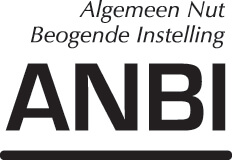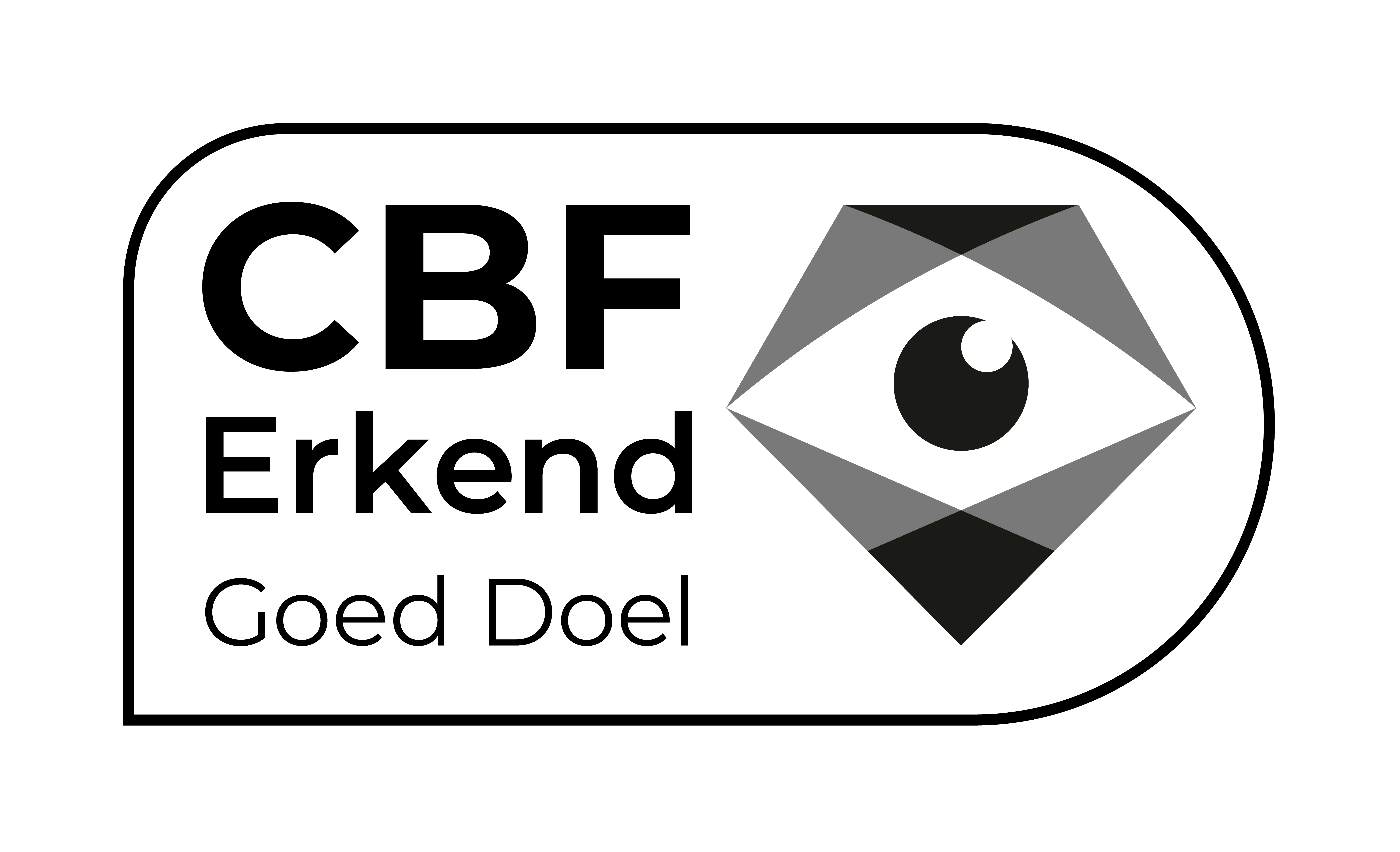News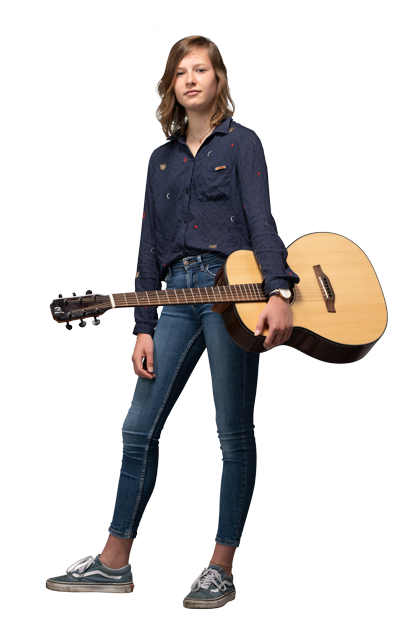
Rotterdam's Polderplein. The backdrop to Soufiane Touzani's youth. A boy with a ball. Always that ball. His buddy, his friend. Soufiane is sStreet footballer, entrepreneur, rapper, presenter, television producer, and vlogger. "And I really want all children in the Netherlands and far beyond to have the opportunity to discover this passion. That's why I'm working with the Youth Fund for Sports and Culture. To make the world a little better together."
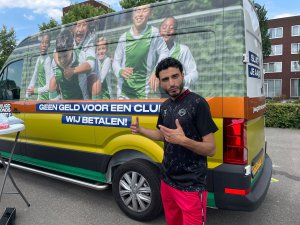 Soufiane Touzani was fascinated by sports, especially football, from a young age. "I was always playing outside, practicing, playing games. My ambition was to become a professional footballer until a serious spinal deformity put an end to that dream. Yet, the joy of doing something with a ball remained. Keeping it in the air, learning tricks... I spent hours watching videos of others, trying to imitate them. And to improve. That's how my first video came about. A friend filmed it, and it immediately went viral. I now have over a million subscribers on YouTube. That's how it can go! From keeping a ball in the air on the playground to a report in Cristiano Ronaldo's backyard."
Soufiane Touzani was fascinated by sports, especially football, from a young age. "I was always playing outside, practicing, playing games. My ambition was to become a professional footballer until a serious spinal deformity put an end to that dream. Yet, the joy of doing something with a ball remained. Keeping it in the air, learning tricks... I spent hours watching videos of others, trying to imitate them. And to improve. That's how my first video came about. A friend filmed it, and it immediately went viral. I now have over a million subscribers on YouTube. That's how it can go! From keeping a ball in the air on the playground to a report in Cristiano Ronaldo's backyard."
Tips and tricks to improve
I've actually been working on my passion for the ball for thirty years. From a six-year-old boy to now, with all the activities for the football channel Touzani TV and, of course, FC Straat. This is the largest football club in the Netherlands, with 30,000 members. It's an online football club, with all sorts of local activities, challenges, matches, and get-togethers. There's also plenty to learn and see online, including training videos and tips and tricks to improve. And it's truly a club! A community. A football platform where participating children are part of something bigger. They belong somewhere. Our goal is to connect this target group. For me, football has always been a place of joy. Of seeing friends, of creativity, of freedom. I learned to win and lose there. I learned to accept things and persevere when things weren't going well. Setting goals, improving, and learning discipline. Those are all important life lessons. These are experiences that can be useful at all times. You're outside, you're moving. You never have to feel alone because there is a ball, and another child who also wants to play.'
Working together towards the same goal
Soufiane emphasizes that sports contribute much more than just the physical aspect. Children's social-emotional development also benefits from them. "When a child finds their passion, that's wonderful! And that can happen in all kinds of cultural activities, too. That love blossoms; that a child can express themselves and relax. And above all, that there's fun, enjoyment in the activity. And money shouldn't be an obstacle to experiencing this passion. That's why sports should be accessible to everyone. The Youth Sports & Culture Fund makes that possible. And that's why we work together towards the same goal: everyone can participate."
Changing behavior requires perseverance
'The great thing about FC Straat is that the world is the boundary. Because you connect with each other online, anything is possible. It doesn't necessarily stop at the Netherlands. We are focused on helping children from watchtime Unpleasant playtime to get. We want to use the platform, which is of course also viewed online and therefore also watchtime is, rather, inspiring, motivating, and encouraging children to go outside. To play. We've been working on this for two years now, and so much has already happened! But there's still much to be gained. Behavioral change always requires perseverance. We have to be patient. But our ambition is to connect all children who love and are passionate about football to FC Straat. First in the Netherlands, and who knows... After all, the street belongs to everyone! These are local activities, but part of a larger national and even international platform.
Positive impact on humanity
Time is people's most precious asset. We spend half our lives online. That has an impact on people. If we can motivate children to exercise offline, it will have a positive impact on humanity. I believe in that. We have a lot of competition, of course. We're vying for the time spent online. Big tech companies, game designers, are doing everything they can to capture that attention. So we really have to offer something really cool and cool. Something special to counter that. And we're constantly working on that. It's quite a responsibility.
Street football basis for love
Johan Cruijff already said it: I trained four times a week for two hours at Ajax, but every day four hours on the pitch. And that's how it is for many footballers. Street football was often the foundation of their passion. It's easy, of course; the pitches are already there, the Cruijff Courts and the Krajicek Foundation's sports facilities. What else do you need? A ball and enthusiasts... There are also many enthusiastic people involved: neighborhood coaches, sports coaches. We have to do it together, you can't do anything aloneAnother beautiful quote from Cruyff. But he was right. We share the responsibility. Together, we breathe life into society.
More about FC Straat and the Youth Fund
Arie Boomsma is a television presenter, gym owner, and father of three. He believes sports and exercise are important for children and young people, especially for children who are struggling at home. "During exercise, sadness disappears for a moment; worries and fears don't control your life for a moment."
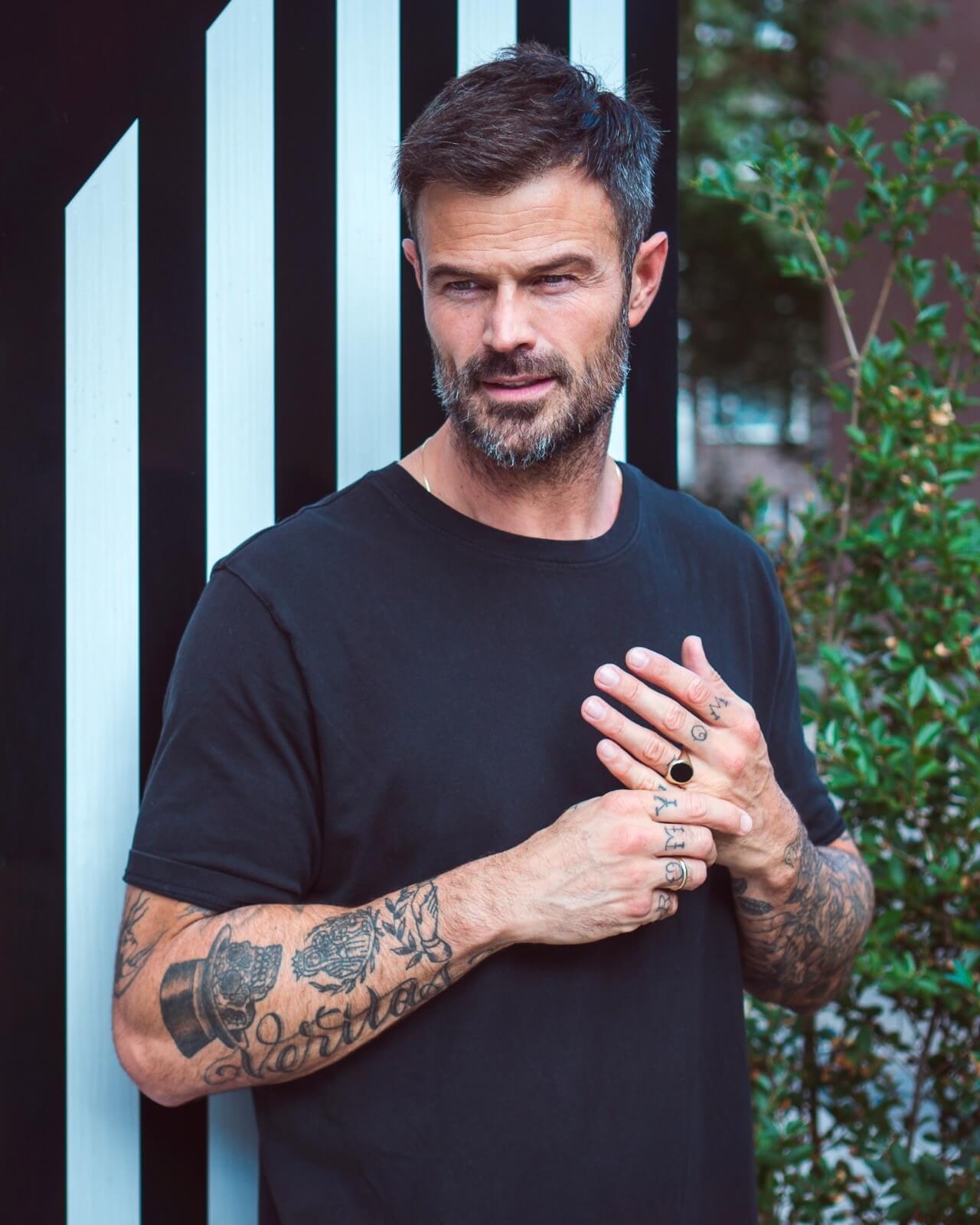
"Sports, or actually just exercise, is an anchor in my day," says Arie. "It creates a rhythm in my schedule. It gives me the energy to keep up with my children and live life to the fullest. It keeps me more optimistic, more resilient, and physically and mentally strong. But perhaps most importantly, I enjoy it immensely. That was the case even as a child. I have three brothers and a sister who came along a little later. At home, we were always climbing, clambering, playing, running, and jumping. My parents weren't well off. In elementary school, we had to choose between sports and music. I chose soccer. In the first year of high school, I started playing basketball. That sport is still my favorite, even though I haven't played it myself for a long time."
Arie had every opportunity at home, but he had to work for it. “My parents supported my choices. But I had to make something of it myself. When I wanted to go to high school in America at sixteen, I had to pay for it myself. After school, I cleaned the cafeteria, the library, and the restrooms to pay for that year. Later, I got a scholarship to study and play basketball at college.”
Sport is essential to his life. What does it bring him, besides the physical benefits? "We live in a time of constant shuffle, constantly switching between everything," says Arie. "Sport is perhaps the only place in our society where you still learn how to persevere, set goals, and work hard for them, sometimes through setbacks and disappointments. Besides, good health is your shield against viruses like COVID. And sport is an international language that allows you to connect with others, regardless of background, age, appearance, or gender."
Sports keep you physically and mentally strong
"For children struggling at home, sports and exercise can provide relief," Arie believes. "Sports are a wonderful outlet. They let off some steam. During sports, sadness fades away, worries and fears don't control your life for a moment. Moreover, exercise releases substances in your body that help you be more positive and cope with unpleasant situations. It keeps you mentally and physically strong, and often brings you into contact with peers."
Arie has two gyms. Can gyms and cultural providers do something to lower the threshold for families with little money? You guys are doing fantastic work, and it's wonderful that the fund exists. But indeed, providers can also do all sorts of things to make sports and culture (even) more accessible. At my company, Vondelgym, we do this, for example, by allowing children with a city pass to participate in boxing, CrossFit, and boot camp classes for free. And we occasionally organize events where young people are welcome to try out different sports. Collaborating with schools can also be beneficial for associations, clubs, and organizations. And don't forget social media. Make what you do visible, show how much fun sports and games can be!
Steven Pont is ontwikkelingspsycholoog, publicist en auteur van ‘Mensenkinderen’ waarin hij de verschillende ontwikkelingsfases van kinderen levendig beschrijft zodat ouders het gedrag van hun kind beter begrijpen. Steven is ook een hartstochtelijk pleitbezorger van cultuur. Maar wat is cultuur eigenlijk en waarom is het belangrijk voor de ontwikkeling van kinderen?
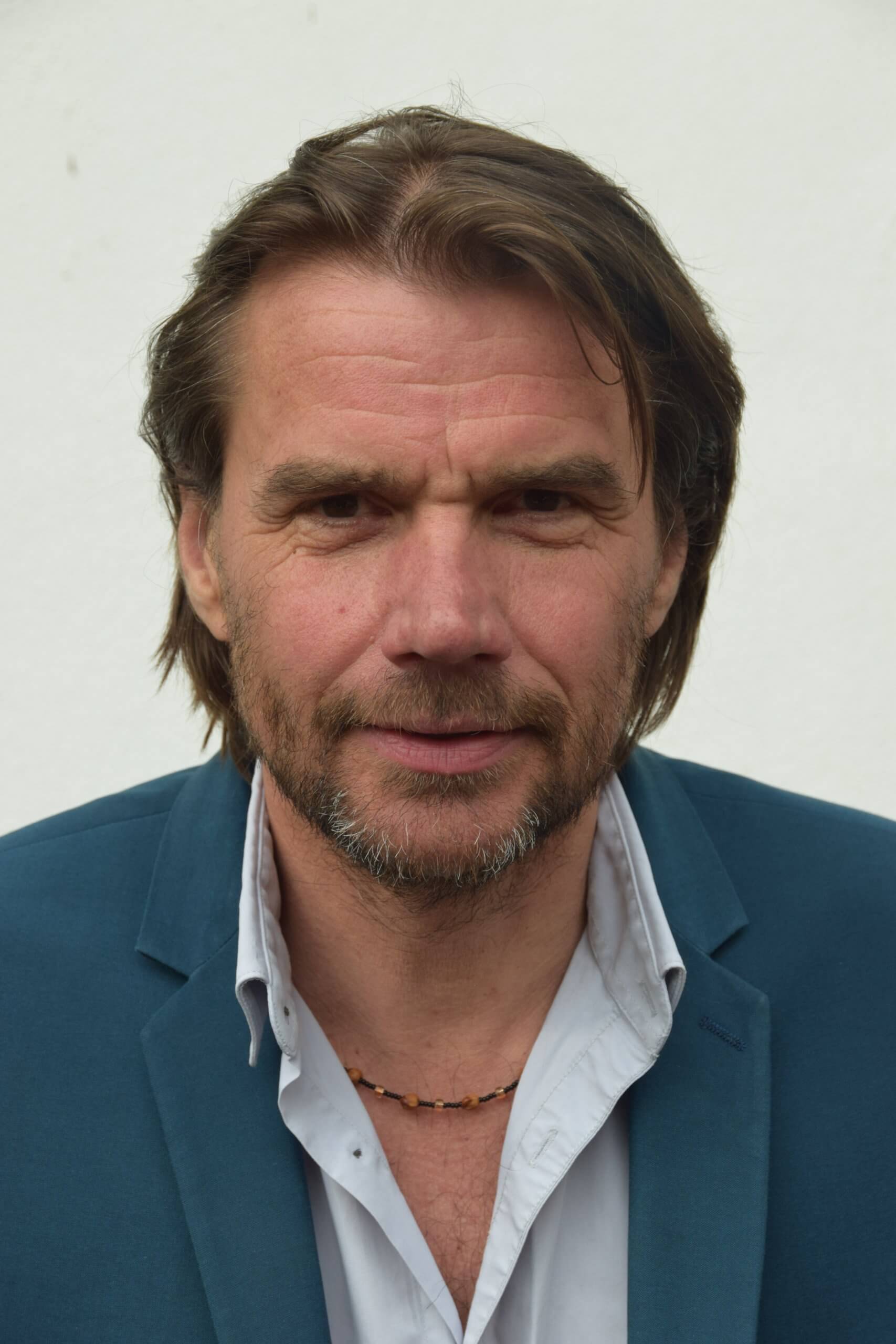 “Cultuur is alles wat ons mens maakt,” antwoordt Steven. “Je zou kunnen zeggen dat cultuur alle karaktereigenschappen van de samenleving bevat. En de samenleving is de plek waar kinderen groot worden. Voor de stabiele ontwikkeling van kinderen zijn drie dingen belangrijk: het gevoel dat je een eigen persoon bent, dat je verbonden bent met anderen en het gevoel dat je iets kunt. Als je dan kijkt naar voetbal, muziek, tennis, dansen, beeldende kunst, judo, theater – daarin kun je je uiten, je eigenheid ontwikkelen maar het verbind je ook met anderen en met het grotere geheel: de samenleving.”
“Cultuur is alles wat ons mens maakt,” antwoordt Steven. “Je zou kunnen zeggen dat cultuur alle karaktereigenschappen van de samenleving bevat. En de samenleving is de plek waar kinderen groot worden. Voor de stabiele ontwikkeling van kinderen zijn drie dingen belangrijk: het gevoel dat je een eigen persoon bent, dat je verbonden bent met anderen en het gevoel dat je iets kunt. Als je dan kijkt naar voetbal, muziek, tennis, dansen, beeldende kunst, judo, theater – daarin kun je je uiten, je eigenheid ontwikkelen maar het verbind je ook met anderen en met het grotere geheel: de samenleving.”
Er zijn biologische basisbehoeften zoals een dak boven je hoofd, voedsel en warmte, maar er zijn ook psychologische basisbehoeften. Steven: “Kunnen bewegen is een basisbehoefte. Maar sport gaat niet alleen over bewegen en een gezonde levensstijl. Dans, muziek en beeldende kunst gaan niet alleen over een leuke vrijetijdsbesteding. Dat is maar de helft. Het gaat uiteindelijk om die drie dingen die ik al noemde: autonomie, verbondenheid en competentie. Anders kun je net zo goed een rondje in het park rennen of in je eentje een instructiefilmpje blokfluit op YouTube kijken. Juist dat je het met anderen doet en dat een kind zelf kan kiezen en zich ontwikkelen in die keuze, is heel belangrijk.”
Gezin, school en club
Een kind leeft in drie milieus: gezin, school en de omgeving die hij of zij zelf kiest zoals het zangkoor of de voetbalclub. Gezin en school zijn verplichte milieus. Maar dat derde is in feite het eerste vrijwillige milieu dat een kind kiest. Dáár ontwikkelen kinderen hun eigenheid, ontdekken ze wat belangrijk is en maken ze hun eigen keuzes. En dat moeten we kinderen gunnen.”
De tweedeling in de samenleving lijkt groter te worden.
Vanuit zijn eigen praktijk als therapeut kent Steven Pont het effect van armoede op kinderen. “Die tweedeling in de samenleving is er en lijkt groter te worden. Er zijn gezinnen waar ouders de portemonnee kunnen trekken voor bijles. Of om hun kind kennis te laten maken met muziekles, voetbal of tennis waarna het zelf kan kiezen. Dat zijn beschermende factoren voor een kind. Er zijn risicofactoren voor alle kinderen, uit wat voor gezin ze ook komen. Maar als er te weinig beschermende factoren zijn, loopt het kind meer risico. Bijvoorbeeld dat het kind zich als volwassene minder goed kan ontwikkelen omdat het zich niet heeft kunnen uiten en dat derde milieu nooit heeft kunnen kiezen.
Kinderen die iets doen aan sport en cultuur kunnen zich uiten, voelen zich verbonden maar worden ook steeds beter in wat ze doen. Daardoor worden ze sterker en krijgen ze meer zelfvertrouwen. En is de kans ook groter dat ze als volwassene beter meedoen in de samenleving.”
Roy van Schie is jongerenwerker bij het Welzijnskwartier in Katwijk. Roy is ook Cruyff Foundation Coach en betrokken bij het project Cultuur@CruyffCourts in Katwijk. ‘Ik wil jongeren het gevoel geven dat ze ertoe doen’.
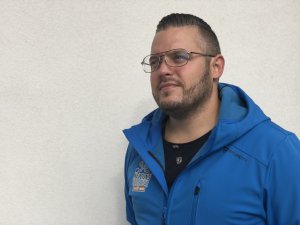 Roy is al ruim 10 jaar jongerenwerker. Wat motiveert hem? “Ik heb toen ik jong was, zelf ook kansen gekregen via jongerenwerk. Ik zag wat er op straat speelde, ben een beetje door schade en schande wijs geworden. Via het jongerenwerk maakte ik kennis met DJ’en. Dat heeft mijn leven veranderd en me gemotiveerd om me nu in te zetten voor andere jongeren. Weet je, 80% van de jongeren komt wel op z’n pootjes terecht. Ik wil samen met mijn collega’s die andere 20% ook aan boord te houden.”
Roy is al ruim 10 jaar jongerenwerker. Wat motiveert hem? “Ik heb toen ik jong was, zelf ook kansen gekregen via jongerenwerk. Ik zag wat er op straat speelde, ben een beetje door schade en schande wijs geworden. Via het jongerenwerk maakte ik kennis met DJ’en. Dat heeft mijn leven veranderd en me gemotiveerd om me nu in te zetten voor andere jongeren. Weet je, 80% van de jongeren komt wel op z’n pootjes terecht. Ik wil samen met mijn collega’s die andere 20% ook aan boord te houden.”
Aandacht
Roy werkt in wijken in Katwijk die meer aandacht nodig hebben. “Juist daar is ons werk het meest nodig,” vindt Roy. “Ik merk dat er vaak gekeken wordt naar wat jongeren niet kunnen, ik kijk liever samen naar wat iemand wel kan. Ik probeer iedere jongere waar ik mee werk het gevoel te geven dat hij of zijn ertoe doet. Via ons DJ project leren ze niet alleen dat het tof is om te draaien maar leren ze ook in het middelpunt van de belangstelling te staan, te presenteren en om te gaan met afspraken en druk. Ze leren dat ze zélf verantwoordelijkheid moeten nemen. Als je op je handen blijft zitten, gebeurt er niets.”
Lol online, eenzaamheid offline
Wat heeft Roy in die 12 jaar dat hij jongerenwerker is, zien veranderen. “Daar hoef ik niet lang over na te denken,” zegt Roy. “De smartphone heeft het leven van jongeren enorm veranderd. Aan de ene kant is het een verrijking waar we niet meer zonder kunnen. Wat ik ook zie is dat veel jongeren online het ogenschijnlijk goed hebben. Ze hebben veel contacten en volgers. Maar als je dan doorvraagt, blijkt dat sommigen in het echte leven bijvoorbeeld eenzaam zijn en dat het ook steeds ingewikkelder wordt om offline vriendschappen op te bouwen. Dat vind ik zorgelijk. Daarom zijn het soort projecten als mijn DJ project en Cultuur@CruyffCourts zo waardevol. Jongeren ontmoeten elkaar daar live. Een andere zorg is de verslavingsproblematiek. Er zijn heel veel middelen vrij gemakkelijk beschikbaar. Jongeren die hun leven onvoldoende inhoud kunnen geven, zijn gemakkelijke slachtoffers. ”
Wat vindt Roy van Culture@CruyffCourts? “Mooi. Fantastisch dat jullie dat doen! Het is een goede aanvulling op het programma van het Welzijnskwartier. Ik hoop natuurlijk dat kinderen en jongeren vervolgens doorgaan naar reguliere lessen en wij contact met hen blijven houden.”
Contact houden
De lockdown tijdens de coronacrisis maakte contact met de jongeren lastiger. Als we elkaar spreken dreigt de tweede lockdown. Hoe gaat Roy daarmee om? “Het is lastig,” zegt Roy. “Je komt elkaar minder vaak live tegen. Wij hebben daarom ons activiteitenaanbod in het begin van de coronacrisis zoveel mogelijk gedigitaliseerd en via sociale media live open Q&A gesprekken georganiseerd om zo in contact te blijven en te houden met jongeren. Daarnaast hebben we gelukkig ook veel jongeren nog fysiek en individueel kunnen zien en spreken. Contact houden is het allerbelangrijkste.”
Read more
Budgetcoach Mariska Eshuis is in 2019 voor zichzelf begonnen nadat ze jarenlang op de afdeling huurincasso van een woningcorporatie werkte. Ze vond dat het anders moest. "Iedereen kan in een situatie belanden waardoor er even geen overzicht meer is of hulp bij schulden hard nodig is."
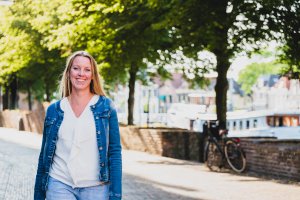 In 2019 gooide Mariska het roer om en werd zelfstandig budgetcoach nadat ze jarenlang werkte op de afdeling huurincasso van een woningcorporatie. “Juist omdat ik zelf uit een gezin kom waar bijna ieder dubbeltje moest worden omgedraaid, weet ik wat voor leed er schuilgaat achter de voordeur in armere wijken. Het gaat nooit alleen om geldproblemen. Er spelen altijd andere dingen mee. Ik wil me inzetten voor mensen die grip op hun financiële situatie kwijt zijn. En daarbij gaat het echt niet alleen om mensen aan de onderkant van de samenleving. In tegendeel. Juist 'Jan Modaal' die geen recht heeft op allerlei voorzieningen, houdt uiteindelijk minder over dan een gezin met een minimum inkomen dat wel een beroep kan doen op allerlei regelingen.”
In 2019 gooide Mariska het roer om en werd zelfstandig budgetcoach nadat ze jarenlang werkte op de afdeling huurincasso van een woningcorporatie. “Juist omdat ik zelf uit een gezin kom waar bijna ieder dubbeltje moest worden omgedraaid, weet ik wat voor leed er schuilgaat achter de voordeur in armere wijken. Het gaat nooit alleen om geldproblemen. Er spelen altijd andere dingen mee. Ik wil me inzetten voor mensen die grip op hun financiële situatie kwijt zijn. En daarbij gaat het echt niet alleen om mensen aan de onderkant van de samenleving. In tegendeel. Juist 'Jan Modaal' die geen recht heeft op allerlei voorzieningen, houdt uiteindelijk minder over dan een gezin met een minimum inkomen dat wel een beroep kan doen op allerlei regelingen.”
Luisteren naar het verhaal
Bij de woningcorporatie waar Mariska werkte, zag ze dat mensen die hun huur niet konden betalen, diep in de problemen kwamen. "Dagvaardingen en ontruimingen vond ik heel erg, maar soms had ik geen keus,” zegt Mariska. “Ik vond dat het anders moest. Ik legde veel huisbezoeken af and probeerde er alles aan te doen om huurders met An huurschuld te helpen door rekening te houden met hun financiële situatie. Ik zocht altijd naar een balans tussen het incasseren van de huur en het besef dat een dak boven you hoofd één van de belangrijkste zaken in het leven is. Ik ging niet alleen op huisbezoek om een regeling te treffen maar vooral om het verhaal te horen. Het incasseren veranderde voor mij langzamerhand in een maatschappelijke, hulpverlenende functie."
Wachten op de kinderbijslag
Mariska is vertrouwd met geldzorgen. Ook zij groeide op in een gezin waar niet veel geld was. “Altijd wachten tot de kinderbijslag binnenkwam. In de rij voor de Vlaggetjesweek bij C&A. De goedkoopste boodschappen in huis halen. Geen vakantie. Op een gegeven moment gingen mijn ouders scheiden en werd het geldgebrek nóg voelbaarder. Gelukkig kon mijn vader goed met geld omgaan. Hij heeft me dat geleerd en me ook gestimuleerd te gaan studeren, als eerste van de familie. Ik ben naar de HEAO gegaan omdat I economie interessant vond and ik blij werd van alles rondom cijfertjes, getallen en rekenen. Achteraf gezien was ik toen al bezig met mijn passie rondom budgetteren."
Inkomenstoets moet van tafel
Als intermediair maakt Mariska het mogelijk dat kinderen lid kunnen worden van een sports club of zich creatief kunnen uitleven. “Ik wilde als kind graag op turnen, mijn moeder vond dat te gevaarlijk. Achteraf denk ik: er was gewoon geen geld voor. Mijn dochter zit nu op turnen. Als ik zie wat dat met haar doet, hoe blij ze ervan wordt. Dat raakt mij. Ik wil dat alle kinderen die kans krijgen. Daarom ben ik ook intermediair voor het jeugdfonds. Ik kan gezinnen er echt mee helpen. Maar niet altijd.
Het frustreert me dat de gemeente An inkomenstoets hanteert voor ouders die een beroep op het jeugdfonds doen. Daardoor worden veel gezinnen, die het hard nodig hebben, niet geholpen. Die inkomenstoets moet echt van tafel. Ik vind dat je moet kijken naar wat er uiteindelijk maandelijks onderaan de streep overblijft. Zeker nu. Veel gezinnen zijn getroffen door de coronacrisis. ZZP’ers hebben minder opdrachten. Allemaal mensen die werken maar buiten hun schuld in de problemen komen.”
Zorgen dat mensen begeleiding krijgen
Kunnen mensen die geldzorgen hebben zich een budgetcoach veroorloven? Zeker! “Er is meestal wel een mouw aan te passen en je wordt creatief,” zegt Mariska. “Veel mensen betalen zelf hun traject in de vorm van een maandbedrag welke in een budgetplan wordt opgenomen. Maar we praten also met de werkgever als de cliënt hiervoor openstaat. Vaak weet die wel dat er problemen zijn en wil voorkomen dat er verzuim gaat ontstaan. En als iemand al in verzuim is en ziek thuis zit, kan er een advies vanuit de arbodienst of bedrijfsarts komen.
Mensen met een uitkering kunnen vaak geen begeleiding betalen. Mensen worden nu naar budgetbeheer van de gemeente verwezen, iets wat ze vaak niet willen. Zij willen zelf regie houden en zelf de financiële problemen oplossen. Geef mensen dan vanuit die eigen kracht ook de keuzevrijheid om individuele begeleiding te mogen aanvragen voor budgetcoaching. Dat is nu helaas nog niet mogelijk, maar ook daar ben ik hard mee bezig.”
Amma Asante deed in 2015 voor ons fonds onderzoek naar kunst-, cultuur- en sportdeelname bij kinderen in armoede: ‘Mind the Gap’. Asante’s werkzame leven staat in het teken van je inzetten voor een betere samenleving en gelijke kansand. Zo werkte zij onder meer in de jeugdhulpverlening, asielopvang en publieke gezondheid en was als gemeenteraadslid en lid van de Tweede Kamer actief voor de PvdA. Momenteel is ze voorzitter van de Landelijke Cliëntenraad. Mind the Gap is vijf jaar geleden. Hoe staan we er nu voor als het gaat om kansen voor kinderen?
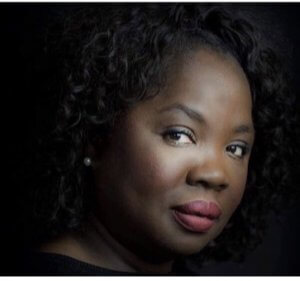
Betrokkenheid en drive zijn het kompas waar Amma Asante op vaart. Waar komt die betrokkenheid vandaan? “Mijn eigen kindertijd heeft er vast mee te maken,” zegt Amma. “Ook ik kom uit een gezin waar niet veel geld was. Overigens heb ik daar niet veel van gemerkt. Maar misschien dat daar het zaadje geplant is. Je afkomst mag niet je toekomst bepalen en dat zie je steeds vaker gebeuren. Armoede is steeds vaker een generationeel probleem. Het wordt van ouder op kind doorgegeven. Als je in de materie duikt kan je niet anders dan je boos maken en je verbazen.”
Mensen houden minder over, ook als ze werken
Armoede is een structureel, maatschappelijk probleem, constateert Amma. Maar veel mensen hebben geen idee. “Dat stoort me. Dat zoveel mensen niet weten dat er een grote groep mensen is die niet kan deelnemen aan het maatschappelijk leven. Daardoor ontstaan achterstanden in gezinnen. Het probleem oplossen betekent dat er eerst maatschappelijk bewustzijn moet zijn. Mensen moeten zich opwinden, van de politiek eisen dat dit opgelost wordt. In Nederland kom je niet om van de honger, er zijn goede voorzieningen. Maar als je verder kijkt, bijvoorbeeld naar gezondheidscijfers en de kansen voor kinderen, dan zie je dat er een duidelijke tweedeling is.”
Haar onderzoek Mind the Gap uit 2015 ging over deelname aan sport en cultuur van kinderen die opgroeien in armoede. Is er iets verbeterd in die vijf jaar? “Dat zie ik niet,” zegt Amma. “Armoede nam enigszins af tijdens de hoogconjuctuur maar dat is inmiddels helemaal tenietgedaan. Onder andere door de coronacrisis. Ik zie ook dat de kosten van levensonderhoud zijn gestegen en uitkeringen worden lager. Mensen houden onder aan de streep minder over, ook als ze werken. Vanuit SZW is er de laatste jaren veel geïnvesteerd in het bekendmaken van de problematiek en het doorbreken van taboes. Dat is heel goed en ik heb daar veel waardering voor maar het is niet genoeg om het probleem structureel op te lossen."
Even los
Waarom is het belangrijk dat kinderen de kans krijgen te sporten, te dansen of muziek te maken? “Het is leuk, goed voor de ontwikkeling en vergroot het zelfvertrouwen waardoor de prestaties op school beter worden. Ook dat is iets dat te weinig onderkend wordt. Ouders die weinig geld hebben, bezuinigen vaak als eerste op de activiteiten van hun kinderen. Begrijpelijk, de vaste lasten gaan voor. Kun je nagaan wat dat betekent voor de ontwikkeling van de kinderen. Juist voor hen is het zo belangrijk even los te zijn van hun ouders, een paar uur per week niet geconfronteerd te worden met schaarste maar lol te hebben met leeftijdsgenoten en nieuwe skills op te kunnen doen. Dat vergroot hun kansen op een betere toekomst."
Eigen kracht versterken
Wat moet er gebeuren om armoede op te lossen. “Heel veel. In fiscaal opzicht kan er veel meer gebeuren. Waar ik me voor inzet is onder andere de vereenvoudiging van het toeslagenstelsel. Er ontstaan veel problemen als het gaat om toeslagen. Het is een ingewikkeld systeem waardoor mensen in de problemen komen en schulden krijgen. Boete wordt op boete gestapeld waardoor mensen steeds dieper in de schulden komen. Schuldenproblematiek is een industrie geworden. Daar moet de overheid iets aan doen. Zoals de mogelijkheid om schulden door te verkopen. Hierdoor kan een schuld van een paar tientjes binnen een jaar stijgen naar honderden euro’s. Je zou bijvoorbeeld ook de kinderbijslag kunnen verhogen voor minimagezinnen. Maar het gaat niet alleen om het geven van geld. Je moet mensen ook in staat stellen op eigen kracht hun inkomen te verdienen zodat het gevoel van eigenwaarde verstthrkt wordt."
Armoede komt nooit alleen
Armoede gaat niet alleen over geldgebrek, vindt Amma. “Wij beoordelen iemand vaak op wat hij of zij verdient, op wat voor werk iemand doet. Als je niet in staat bent je eigen geld te verdienen, word je gezien als loser. Dat draagt bij aan de schaamte en maakt dat mensen zich isoleren. Armoede komt nooit alleen maar is vrijwel altijd verbonden met bijvoorbeeld gezondheidsproblemen en problemen op relationeel gebied. Er moet dus ook aandacht en geld geïnvesteerd worden in de begeleiding van gezinnen. Als je elke dag moet bedenken hoe je eten op tafel moet krijgen, dat vreet aan een mens. Help mensen hun veerkracht te versterken.”
The Sports & Exercise Knowledge Center supports professionals working in sports, healthcare, education, and government with knowledge, advice, and products to make sports and exercise accessible to everyone. Participating in sports and exercise activities is not a given for vulnerable groups, such as children and young people from low-income families. It is expected that a growing number of families will no longer be able to afford sports clubs due to the coronavirus crisis. Laura Butselaar and Jamilla Vervoort are specialists in "Participation through Sports and Exercise." They provide professionals with tools to ensure that vulnerable young people can participate.
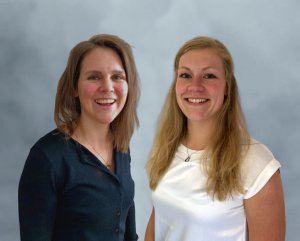 "We're working from home due to the coronavirus crisis, but we're still quite busy," says Laura. "We have to find other ways to reach children and young people. We expect that, as a result of the crisis, the group of parents who can no longer afford their sports club will grow. The crisis also presents an opportunity, now that the government is encouraging sports providers to welcome these children as well, but the question is how do we do that? We have to respond to that now. We've published an article with tips on how to do that." Laura: "Sports and exercise should be accessible to all children. Despite all the facilities available, we see that a large group is still not being reached or that they give up after a while. We're looking at the factors that play a role in this."
"We're working from home due to the coronavirus crisis, but we're still quite busy," says Laura. "We have to find other ways to reach children and young people. We expect that, as a result of the crisis, the group of parents who can no longer afford their sports club will grow. The crisis also presents an opportunity, now that the government is encouraging sports providers to welcome these children as well, but the question is how do we do that? We have to respond to that now. We've published an article with tips on how to do that." Laura: "Sports and exercise should be accessible to all children. Despite all the facilities available, we see that a large group is still not being reached or that they give up after a while. We're looking at the factors that play a role in this."
Future perspective
Sports, exercise, and being part of a social network are important. How do you motivate young people to participate in sports? The logical conclusion is to ask the young people themselves. Laura: “This year, we launched a study to talk to young people. What do sports and exercise mean to them? Do they want it, and if so, how? Based on their answers, we develop recommendations for municipalities, for example. Sports and exercise improve the future prospects of children and young people. Not only because they make you healthy and fit, but also because of the social network. There are rules and agreements at the club; you have to work together and be considerate of each other. So you acquire all kinds of skills that will also benefit you in the future. And a young person can take on a different role within the sports club besides sports. They learn from that, and that's good for their self-confidence.”
Girls
The knowledge center uses a 'human capital model' that identifies no fewer than 79 effects of sports and exercise for each target group. "Thanks to scientific research, we understand these effects," says Laura. "For example, the effect on academic performance. We also see where more needs to be done. For example, Jamilla is working with girls and neighborhood sports. "We know that girls aren't as likely to play sports outside on a neighborhood field," says Jamilla. "We're looking at how girls can still be encouraged to get involved. Discussion is crucial in this regard. Professionals, such as neighborhood sports coaches, can visit schools and ask girls what they want and ensure they're involved in organizing the activity."
The effects of the corona crisis
Due to the coronavirus crisis, many children and young people were stuck at home. Laura: “We don't yet fully understand the impact of this. We do know that it's especially important for this vulnerable group to go to the club. Many people in this target group live in small homes, don't have a garden, and have financial worries. That causes stress. So we're thinking about how we can still offer sports and exercise in this situation. It doesn't have to be so complicated. For example, sports trainer Houda Loukili offers interactive live workouts for women, girls, mothers, and their children. She does this together with her children, and the online participation has been very good. So inspiring!”
Back outside, what now?
Sports clubs are gradually reopening. The government is encouraging sports providers to welcome all children and young people, not just their own members. How do you do that for vulnerable children and young people? Laura: "This is a target group that requires something extra. Clubs need to respond to that. We've compiled a number of tips for involving children and young people. It's good that sports clubs are being asked to open to non-members as well. That offers opportunities. In addition, all sorts of activities can be organized close to home, for example at the Cruyff Courts – and especially in consultation with the target group. We want children and young people to start playing sports but also to keep it up. We have all sorts of tips for that too. Particularly when children reach puberty, you see a dip in participation. It's essential that young people have a voice, and that clubs should utilize that in their offerings. For example, by becoming more flexible in their offerings, not just offering football but collaborating with other clubs. Or combining it with homework support."
This time in particular offers the opportunity to think carefully about how we can best organize things to keep the threshold for sports and exercise as low as possible.”
Read more
- Welcoming children from low-income families to sports: 14 tips
- Interactive live workouts for women, girls, mothers and their children by Houda Loukili
Kredietbank used to be a bank for the poor. Today, it's a social institution that helps people in financial trouble. But very occasionally, loans are granted. Kredietbank Limburg offers debt counseling in the broadest sense of the word. Director Ruud van den Tillaar explains the complexity of debt issues.
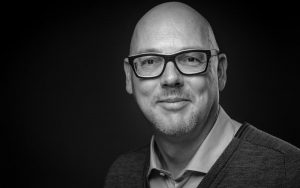 "National figures show that 1.4 million households have problematic or risky debt. Of those, we only have insight into 200,000 households," says Ruud van den Tillaar. "When you consider the stress caused by debt, you realize how extensive the problem is. People's IQs decline, they become less sensitive to their surroundings, and can only see the short term. When you then know that there are 1.2 million households without any support, that's worrying."
"National figures show that 1.4 million households have problematic or risky debt. Of those, we only have insight into 200,000 households," says Ruud van den Tillaar. "When you consider the stress caused by debt, you realize how extensive the problem is. People's IQs decline, they become less sensitive to their surroundings, and can only see the short term. When you then know that there are 1.2 million households without any support, that's worrying."
Out of sight
The reason so many households are out of sight is complex, according to Van den Tillaar. Shame is a factor, but the government's handling of the debt issue, in particular, prevents people from understanding their situation and raising the alarm in time. "The government has many different guises and just as many working methods. The Tax and Customs Administration, the Social Insurance Bank, Social Services, the Education Executive Agency (DUO)—they're all part of the government. If someone doesn't pay a traffic fine, a fine is added to the original fine. Fines are piled on top of fines, and in no time, you're left with a substantial debt. That's how many government services operate. It's better if, in the event of late or non-payment, they're informed whether someone can pay, and if the debt collection is temporarily suspended if it becomes apparent that it's a problem."
Multi-headed monster
Being in debt is complicated, let alone solving it or asking for help. Ruud van den Tillaar: “Many people in debt experience the government as a multi-headed monster and don't ask for help with that same monster. Moreover, it appears from investigation by the National Ombudsman That the barrier to applying for debt counseling from the government is far too high. You have to deal with a mountain of forms and supporting documents, but if you were that good at administration, you wouldn't have ended up in debt trouble.
Just start
The debt problem and the government's approach to it are therefore extremely complex. This is especially true for people suffering from debt stress, which lowers their IQ and makes them unable to see the long term. Is there a solution? "At Kredietbank, we try to make our process as user-friendly as possible, always starting with the question of what we can do for someone. The government should take responsibility. For example, by contacting someone who doesn't pay their fine and referring them to help. South Limburg is known for its poverty problem and intergenerational poverty—meaning that children who grow up in poverty are themselves destined for poverty—is a major problem. We'll have to come up with something to break through that. You just have to get started. You can think and research for a long time, but we do know what's true."
Collaboration is the key
Van den Tillaar believes it helps when municipalities and institutions collaborate. “We collaborate with 20 municipalities and with institutions like SchuldHulpMaatje and welfare organizations. Because many people are struggling with debt problems. If you join forces, you can make progress. And if we demonstrate in our services that we look at people with an open mind and take them seriously, we can make a difference. The Ombudsman recently put it beautifully: as a government, you must be honest, straightforward, and understanding by 2030. That sums it up for me.”
Read more about debt assistance
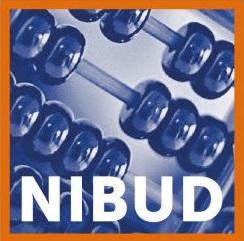 Nibud is the knowledge center for the household budget of the Dutch. Nibud aims to help people gain and maintain control over their finances, now and in the future. This means providing research, information, and advice for both citizens and the government. Nibud also trains debt counselors who can support families. Director Arjan Vliegenthart: "Poverty is not just a personal problem, but a societal problem."
Nibud is the knowledge center for the household budget of the Dutch. Nibud aims to help people gain and maintain control over their finances, now and in the future. This means providing research, information, and advice for both citizens and the government. Nibud also trains debt counselors who can support families. Director Arjan Vliegenthart: "Poverty is not just a personal problem, but a societal problem."
"We provide life jackets but also advocate for fencing along the ravine," Arjan Vliegenthart paints. "We help individuals but are happy to contribute to a different financial structure in society. Poverty isn't just a personal problem, but a societal problem.
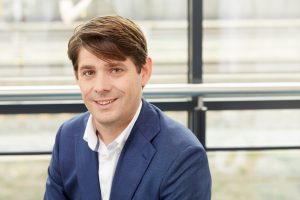
It should be designed to help you avoid debt. The lower your income, the harder it is to make ends meet. That seems obvious, but it's not entirely true. There are also people who can get by well on little money. So there's also a behavioral component. It means being able to see the consequences of your financial decisions. How do you maintain sufficient control over your monthly income and expenditure? Financial stress leads to less rational behavior. And vulnerable people hide away and are therefore difficult to reach. The biggest challenge lies in reaching that group.
It's difficult to catch up when you're behind
Poverty in the prosperous Netherlands? Many Dutch people can't imagine it, because when life gets tough, you're entitled to benefits, and most people have a roof over their heads. Vliegenthart: "Poverty in the Netherlands means you can't participate socially, and in that sense, there really is poverty in the Netherlands. And no, that's not hunger poverty like elsewhere in the world, but it does mean, for example, that you can't go to a birthday party because you don't have money for a present. That children can't join a sports club or take music lessons because there's no money for it. The world is getting smaller and smaller. This causes children to fall behind, a disadvantage they'll find very difficult to bridge throughout their lives. Not to mention all the joy you're denied when you don't have much money."
More debt, less demand for help
The Nibud leads debt counselors These people can help them get a grip on things. However, a recently published article shows that fewer and fewer people are asking for help. "Having debt is taboo, shame is a problem," says Vliegenthart. "That's because there's so much morality surrounding it. If you have debt, you're probably guilty of it. If we can remove that morality, we'll be well on our way. People often think that debt counseling is for people who are worse off. As a result, people are less likely to turn to the municipal help desk. And the municipality is primarily focused on people they already know, for example, through social assistance. But there are groups that are less likely to be targeted, such as the self-employed."
Building up a buffer
Building up a buffer for emergencies is the first piece of advice the Nibud (National Institute for Family Finance Information) gives people. But the government doesn't always facilitate this. "It would help if policy were adjusted here and there. Take the standards for municipal tax waivers: they're very low. That's where the buffer goes. So, there's actually a perverse incentive in that policy. If that policy is improved, it would immediately provide relief. The same applies to the entire debt industry. People receive fines after fines for late bill payments, sinking them deeper and deeper into a hole they can't escape. People receiving debt counseling must have sufficient income, otherwise they won't make it. You can teach people to look at every penny carefully, but if every penny is needed, things will eventually go wrong. That's why reorganizing society is so important."
Poverty as a legacy
Children who grow up in poverty miss out on opportunities that other children do. Arjan Vliegenthart is convinced of this. “Unfortunately, it matters where you're born. It's not always about a family's financial capital; social and cultural capital, as well as the parents' education level, also contribute to a child's development. And that sometimes goes from generation to generation. There's a good chance that children who grow up in poverty will continue to struggle with financial hardship for the rest of their lives; that's a serious problem. You can escape it, but it's not that easy. And the way society is structured isn't exactly conducive to this. Young people can generally only buy a house if their parents contribute some of the financing. Rents are rising. This makes people vulnerable and increases the risk of homelessness. We see that the number of homeless people is growing. The disparities in society seem to be widening.”
Education
To make people more resilient, Nibud and its partners provide information to various groups, including high school students. We not only give young people insight into how to manage money, but also what to expect when they do. turning 18For example, many young people have no idea that they need to take out their own insurance. They have no idea of all the costs that come with being an adult. That's asking for trouble.
Parents who have difficulty making ends meet
Parents want the best for their child. And they feel ashamed if they can't provide what the child needs. "Lack of money isn't something to be ashamed of," says Vliegenthart. "Ask for help if you can't figure it out. There are solutions. As a parent, you want your child to thrive and be happy. The beauty of the Youth Sports & Culture Fund is that the support is provided in kind. Membership and supplies for things like a sports club or dance lessons are paid for. So these can't be confiscated by third parties. This ensures that your child can always participate. I find that very meaningful."
Children also need to know that help is available and that they shouldn't bully each other about their lack of money. Peer pressure among young people is immense. It would be great if this could be discussed. It's ridiculous that we can't achieve this in a wealthy country like the Netherlands. It's a matter of honor that we do make this happen.
Control over financial worries due to the corona crisis (Nibud)
Hoogleraar klinische neuropsychologie Prof. Dr. Erik Scherder is on a mission: mensen in beweging zetten. En daar kun je wat hem betreft niet vroeg genoeg mee beginnen. Bewegen en muziek maken zijn goed voor het brein. Scherder’s missie past dus uitstekend bij die van het Jeugdfonds Sport & Cultuur: het mogelijk maken dat alle kinderen kunnen sporten, dansen of muziek maken.
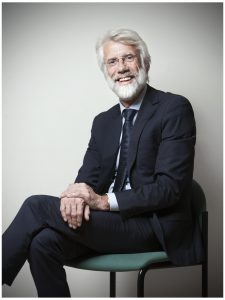
Erik Scherder pleit ervoor dat muziek een vanzelfsprekend onderdeel gaat uitmaken in de levens van kinderen. “Muziek is heel belangrijk voor de ontwikkeling van kinderen,” zegt Erik Scherder. “Het brein van een kind is volop in ontwikkeling. Zingen of het bespelen van een instrument zorgt ervoor dat er nieuwe verbindingen tussen de hersendelen worden aangelegd. Muziek maken stimuleert de ontwikkeling van het kind. Als je muziek maakt, moeten de hersendelen met elkaar samenwerken en daar worden ze beter van. Een kind leert op muziekles noten lezen, is bezig het instrument te bespelen en moet tegelijkertijd goed luisteren. De hersenen worden dus volop aan het werk gezet. Daarnaast raakt muziek je en daarmee draagt bij aan de emotionele ontwikkeling. Je kunt dus niet vroeg genoeg beginnen!”
Lekkerder in je vel
Behalve dat Scherder een groot pleitbezorger is voor meer muziek, pleit hij ook voor meer bewegen, want ook bewegen is goed voor het brein. “Lichaamsbeweging en met je hersens bezig zijn, doen een beroep op dezelfde circuits in het brein,” zegt hij. “Het gaat om dezelfde neurale systemen. Als kinderen en jongeren te weinig bewegen, gaan ze daar last van krijgen. Er is een grotere kans op overgewicht en fysieke klachten maar het heeft ook invloed op hoe je je voelt. Het is bekend dat mensen met een depressie baat hebben bij bijvoorbeeld hardlopen. Als je lekkerder in je vel zit, presteer je beter en voel je je beter.”
Bewegen maakt ons dus ook slimmer? “Dat zou je best zo kunnen stellen,” zegt Scherder. “In ieder geval zorgt sporten voor een betere doorbloeding van het brein. Beweging heeft ook een gunstig effect geeft op de neurotrofines in het brein, dat zijn de ‘voedingsstoffen’ waardoor onze chemische huishouding beter functioneert. Pokon voor de hersencellen!”
Een kind leert op muziekles noten lezen, is bezig het instrument te bespelen en moet tegelijkertijd goed luisteren. De hersenen worden dus volop aan het werk gezet.
Investeren in de toekomst
Als een kind aan sport en het liefst ook aan muziek doet, ontstaan er meer vertakkingen in het jonge brein. Jammer genoeg bewegen kinderen en jongeren de laatste jaren steeds minder. Een kind of jongere zit dagelijks uren naar een scherm te kijken. Er is bewezen dat bescheiden bewegingsprogramma’s op school een groot verschil maken. Uit onderzoek op basisscholen is gebleken dat een half uur extra bewegen per dag al een significante verbetering geeft. De aandacht en concentratie bij de kinderen verbeterden. Erik Scherder: “Daarmee wordt een reserve opgebouwd; je investeert daarmee in je toekomst, in je hele levensgeluk. Die verrijking kan nét het verschil maken! Het is dus belangrijk dat ouders beseffen dat sporten, muziek maken en dansen niet alleen maar leuk zijn, maar essentieel zijn voor de ontwikkeling van kinderen.”
Facts & numbers
children and young people became members of a club through us in 2024.
in 2024, children and young people became members of a sports club through us.
in 2024, children and young people became members of a cultural club through us.
issued sports and cultural equipment in 2024.
